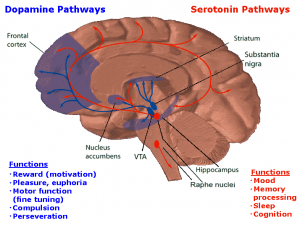Podcast: Play in new window | Download
In this episode we will discuss:
- Substance Use/abuse and PTSD.
- 3 Signs Substance Use has become Substance Abuse
- 3 Strategies for dealing with Substance Use/Abuse
Substance Use/Abuse and PTSD
- Both civilian and military suffers of PTSD are more likely to also deal with Substance Use Disorder (SUD), according the U.S. VA
- Self-medication
- Why? Deal with intrusive memories (forget for a while), sleep problems, covering feelings of: anger, numbness, depression, etc.
- http://www.ptsd.va.gov/public/pages/ptsd_substance_abuse_veterans.asp
The following is not an exclusive list. Add your own thoughts to the comments.
Also, this is not intended to diagnose any mental or physical disorder. This is based on the host’s experience with family members who suffered from substance use/abuse, his experience as a pastor/chaplain dealing with many individuals and families and his reading of the literature in the area of addiction. Please consult a qualified healthcare provider for your specific needs.

[Special Note: The adolescent brain is still in development until about the age of 25. The region to last develop is the reasoning center of the Prefrontal Cortex. Don’t mess with it! Why is this so important for our discussion? Some sufferers of PTSD are below the age of 25. Much research show that illicit drug use at younger ages run significant additional potential psychological and neurological problems. For more info: http://science.howstuffworks.com/life/teenage-brain1.htm]
3 Signs Substance Use has become Substance Abuse
- Used to escape, avoid or “deal” with problems
- Lying about or hiding use
- Defensive about use
What can I do if I think substance use has become abuse in my life?
3 Strategies for Dealing with Substance Use/Abuse
What can I do if I think substances use has become abuse in the life of a loved one, friend, or coworker?
- Individually (or with another) Confront: Do this only when all are sober and there it is a safe environment with no risk of violence or abuse. Also, be prepared for resistance, denial, defensiveness, other manipulative tactics and/or hostility. A first discussion about substance abuse rarely result in the abuser willingly surrendering for the necessary help. Be patient.
- Set boundaries: Let them know what is acceptable and unacceptable behavior in your presence, work or home. They may deny the problem that does not mean that the problem does not exist. It is important to let them know that how they are handling things in their life is affecting your life as well. There are consequence for their choices. Do not hesitate to get counsel on what would be healthy and reasonable boundaries for your specific situation.
- Intervention: At some point you may determine that an intervention is necessary. It may take a group of people who care for the individual to get through to them—especially if the first actions have not been successful. Be prepared. Make sure the group is on the same page. It is extremely helpful to have someone experienced present at the intervention. Make sure you have resources lined up to deal with the needs if the individual is ready to accept help. For further help with an intervention read the following link from the Mayo Clinic http://www.mayoclinic.com/health/intervention/MH00127
Question: How has reaching out to help other assisted you in your journey?
[For a discussion of the medical distinction of use vs. abuse see: http://methoide.fcm.arizona.edu/infocenter/index.cfm?stid=201]
